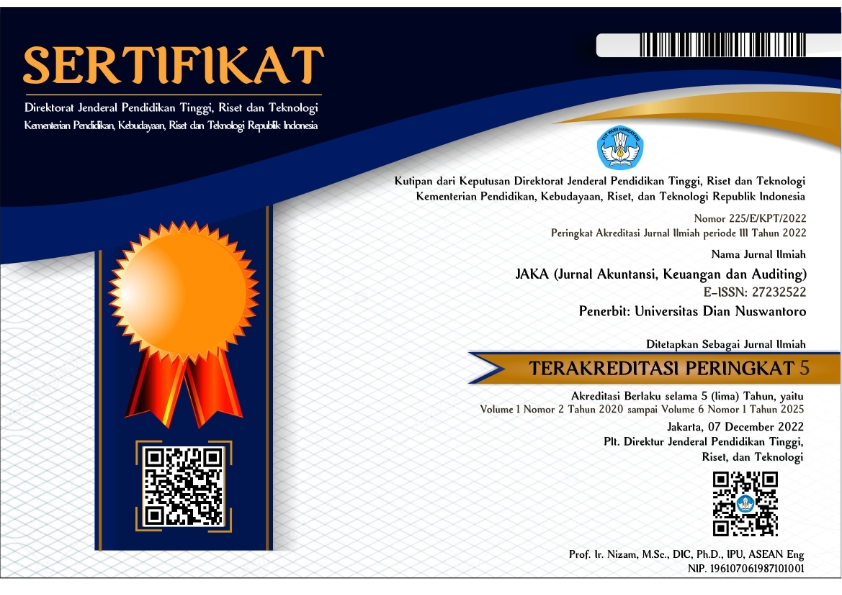Analisis Dampak Sosial Dan Ekonomi Pada Program Pemberdayaan Masyarakat Berbasis Sumber Daya
DOI:
https://doi.org/10.56696/jaka.v4i2.7912Abstract
This study aims to analyze the social and economic impact of resource-based community empowerment programs. The program, which was initiated by a company in Kalimantan, utilizes and develops the potential of weaving as local wisdom through corporate social responsibility activities. The social and economic impact is manifested in the form of community satisfaction as beneficiaries of the program. Community satisfaction is assumed to be the success of the program and providing social and economic impact to the beneficiaries. This research uses quantitative methods. Data was collected by interviewing the overall beneficiaries of the program, a total of 23 people. Data collection using purposive sampling techniques. The data analysis technique uses a simple average value by comparing the weighted value and the weighted value so that a percentage of the satisfaction value is obtained. The next analysis technique is servqual analysis, which is to compare the value of expectations and the value of reality of criteria. The results showed that beneficiaries felt the social and economic impact of the resource-based community empowerment program with a value of 4.90 or 97.95%. This research is only able to analyze simple social and economic impacts, it is necessary to measure the impact with other methods as a comparison, namely by using social return on investment (SROI).References
Ibrahim, M. N., Kimbu, A. N., & Ribeiro, M. A. (2023). Recontextualising the determinants of external CSR in the services industry: A cross-cultural study. Tourism Management, 95. https://doi.org/10.1016/J.TOURMAN.2022.104690
Lulewicz-Sas, A., & Godlewska, J. (2015). Assessment of Environmental Issues of Corporate Social Responsibility by Enterprises in Poland - Results of Empirical Research. Procedia - Social and Behavioral Sciences, 213, 533–538. https://doi.org/10.1016/J.SBSPRO.2015.11.446
Tsalidis, G. A., de Santo, E., Gallart, J. J. E., Corberá, J. B., Blanco, F. C., Pesch, U., & Korevaar, G. (2021). Developing social life cycle assessment based on corporate social responsibility: A chemical process industry case regarding human rights. Technological Forecasting and Social Change, 165. https://doi.org/10.1016/J.TECHFORE.2020.120564
Zakaria, Y. A., Iddrisu, T. I., & Arthur, B. K. (2023). Social impact assessment (SIA) of the Tamale viaduct project in Ghana: Stakeholders management practices, better or worse? Heliyon, 9(3), e14249. https://doi.org/10.1016/J.HELIYON.2023.E14249
Zimek, M., Asada, R., Baumgartner, R. J., Brenner-Fliesser, M., Kaltenegger, I., & Hadler, M. (2022). Sustainability trade-offs in the steel industry – A MRIO-based social impact assessment of bio-economy innovations in a belgian steel mill. Cleaner Production Letters, 3, 100011. https://doi.org/10.1016/J.CLPL.2022.100011
Zira, S., Röös, E., Rydhmer, L., & Hoffmann, R. (2023). Sustainability assessment of economic, environmental and social impacts, feed-food competition and economic robustness of dairy and beef farming systems in South Western Europe. Sustainable Production and Consumption, 36, 439–448. https://doi.org/10.1016/J.SPC.2023.01.022
Downloads
Published
How to Cite
Issue
Section
License
Copyright (c) 2023 JAKA (Jurnal Akuntansi, Keuangan, dan Auditing)

This work is licensed under a Creative Commons Attribution-ShareAlike 4.0 International License.












